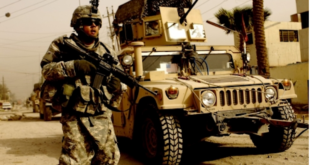DUBAI — Stung by a mounting number of deaths on increasingly clogged and unsafe roads, the bustling Gulf emirate of Dubai has declared war on reckless drivers.
Almost a million cars throng the highways of the booming city state with a population of around 1.4 million, and that number is set to keep rising as thousands of people move to Dubai every year to claim a stake in its economic success.
According to Dubai’s Roads and Transport Authority (RTA), 312 people died in road accidents last year, an increase of 32 per cent from 2005. This gives the emirate one of the world’s highest road mortality rates — 21.9 per 100,000 inhabitants.
The World Health Organisation says deaths from road accidents average 11 per 100,000 inhabitants in western Europe, climbing to 28 in Africa and 41-42 in El Salvador or the Dominican Republic.
The number of people injured in Dubai traffic accidents was 2,940 last year, up from 2,566 in 2005.
Traffic jams in Dubai — one of seven making up the United Arab Emirates — are compounded by a strained, albeit expanding, road network and the near absence of public transport.
Little wonder that four-by-four vehicles are popular among frustrated drivers keen to swap congested streets for desert dunes at weekends.
But now traffic chiefs are determined to tackle the growing accident problem which they say is caused mainly by speeding, dangerous overtaking, driving too close to the car ahead and drink-driving.
According to Dubai police figures cited in the local press, the number of people killed in drink-driving accidents rose to 75 in 2006 from 13 in 2005, a rise of some 500 per cent, despite a ban on driving after any intake of alcohol.
The government launched a campaign in November aimed at making the roads safer.
Dubbed “You Decide!,” it aims to “turn Dubai into one of the world’s 10 safest cities [for driving] within five years,” Mohammad Seif Al Zafin, director of Dubai police’s traffic department, said.
The campaign reduced monthly deaths on the roads to 19 in November, but the number rose to 25 the following month.
“Despite the ongoing campaign, careless drivers remain a problem,” said Dubai police chief Lieutenant General Dhahi Khalfan Tamim.
Authorities have given out special telephone numbers and asked the public to inform on reckless drivers. Local newspapers have also published pictures of drivers caught breaking traffic rules by fixed or mobile radars.
Traffic camera pictures of drivers running red lights or exceeding the speed limit have become an almost daily sight in local newspapers, which also show the offenders’ number plates.
Football fans still celebrating the success of the UAE’s Gulf Cup victory earlier this year will also be targeted as part of the traffic crackdown.
Cars with windscreens obscured by pictures of the winning side and UAE flags are a no-no, according to police, as are heavily tinted windows.
Penalties have been toughened and authorities plan to make the cost of reckless driving even more prohibitive.
A draft law still to be approved by the federal government provides for a fine of 2,000 dirhams ($545, 400 euros) and 12 points on the driving licence for running a red light, compared with 500 dirhams ($136) and five points now.
Twenty-four points and a licence is lost for a year.
Drivers caught breaking the law will also be notified of the penalty by e-mail within 10 minutes of the infraction — a first in the Gulf region.
 Eurasia Press & News
Eurasia Press & News



